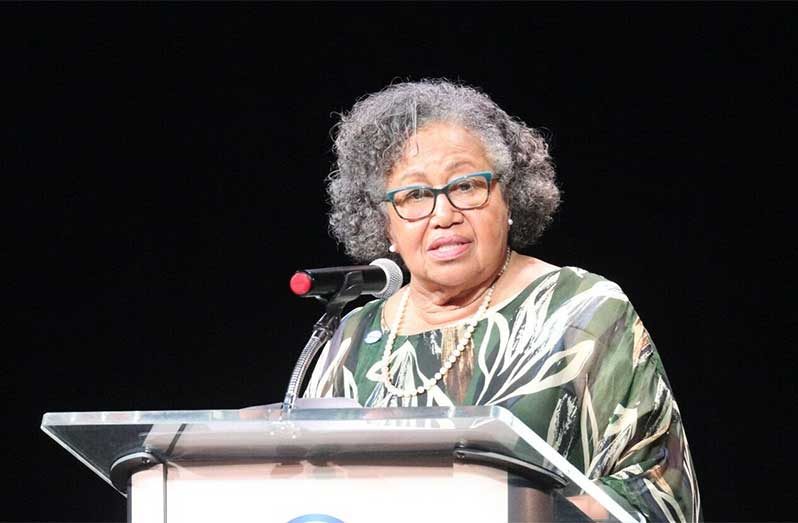CARICOM Secretary-General (SG) Dr. Carla Barnett has underscored the Caribbean Community’s commitment to health as a pillar of sustainable development, calling for strengthened co-operation between Africa and the Caribbean.
Delivering remarks at the Opening Ceremony of the Second Joint Meeting of Ministers of Health of the African and Caribbean Regions in Addis Ababa, Ethiopia, Dr. Barnett highlighted the critical role of the Caribbean Cooperation in Health (CCH) framework. Now in its fourth iteration, the framework has enabled CARICOM Member States to align strategies, mobilise resources, and address priority health concerns collectively.
“Health has long been a central focus of the regional development agenda in CARICOM. Guided by the Caribbean Cooperation in Health framework, our governments continue to tackle the health challenges affecting the people of the Caribbean Community,” Dr. Barnett said.
Dr. Barnett also reflected on CARICOM’s leadership in addressing non-communicable diseases (NCDs), recalling the 2007 Port-of-Spain Declaration that spurred global attention and led to the United Nations High-Level Meeting on NCDs in 2011. She highlighted regional initiatives, including Caribbean Wellness Day, fiscal policies targeting unhealthy products, and community-driven campaigns such as Caribbean Moves, promoting active and healthy lifestyles.
In addition, she lauded CARICOM’s achievements in maternal and child health, HIV prevention, and emergency response, particularly the pivotal role of the Caribbean Public Health Agency (CARPHA) during the COVID-19 pandemic. “These achievements reflect the strength of regional integration and the remarkable outcomes possible when small states act together for the common good,” she said.
Acknowledging vulnerabilities exposed by the pandemic, such as gaps in health financing, workforce retention, and supply chain security, Dr. Barnett expressed appreciation for the African Medical Supplies Platform, which provided essential support during the crisis.
Highlighting shared challenges—including high NCD burdens, infectious disease risks, and limited fiscal space—she urged deeper collaboration between Africa and the Caribbean. Dr. Barnett cited the Memorandum of Understanding between CARICOM and the Health Development Partnership and Cooperation (HeDPAC) as a framework for joint efforts in health workforce development, sustainable financing, primary health care, and collective procurement.
“This second joint meeting is a clear signal that Africa and the Caribbean are working more closely together. We are bound by history and share a vision for the future. Our responsibility is not only to exchange ideas but to agree on concrete actions that can be pursued collectively by our governments and supported by our Regional Institutions and partners,” Dr. Barnett concluded.
Dr. Barnett also extended gratitude to the Government and People of Ethiopia for their warm hospitality and acknowledged the African Union and HeDPAC for their collaboration in convening the meeting.



.jpg)








